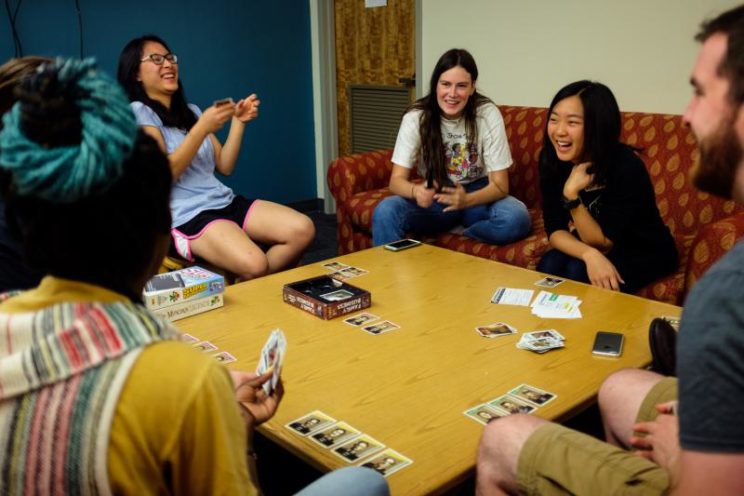
The other day, we posted an article with some resources for starting a grad group. But what are the nuts and bolts of starting a group? Bob Trube, director of Emerging Scholars Network helped re-start a graduate group at Ohio State and has worked with other staff and students in launching graduate fellowships and offers some practical helps
________________________________________________________________________________________
Are you a grad student on a campus with no graduate Christian group (at least that you know of)? I’m going to assume that you opened this article because you would like to either find one or start one. First, you want to make sure there isn’t a graduate Christian group on campus. Your grad office or student activities office or website are good places to check.
Why? It’s a good idea to be able to know why you want to start a grad fellowship, in case you are talking to others who might be interested in joining you. Here’s a few ideas:
- Loving God and people. Do you see so much beauty in what you study but are saddened that God doesn’t get credit? A good reason to get together is your excitement about God, your love for Christ, and wanting others to experience that saving love in Christ.
- Loving each other. Grad students draw great encouragement from discovering others who understand their daily reality. It’s a group you can be real with without a lot of explanation.
- Loving your discipline. Have you thought about the connection between your love for Jesus and your love for you discipline? Wouldn’t it be great to find others with whom you can talk over that connection?
How? OK, so how do you get started?
- Find someone who you can pray with about launching. When you gather to pray, focus on God’s greatness and prayers for your campus. Pray for friends who are not Christians and pray that God will lead you to like-minded Christians. Offer your academic work and its challenges to God. Consider prayer-walking your campus.
- Keep looking for like-minded Christians in your departments and at your churches. Post your prayer gatherings in any event calendars or other vehicles grad schools offer. Create pages on social media.
- Do a right-sized launch event when you have five or more people. Do something intriguing for grads whether they are Christians or not. One group did Conversation & Cuisine nights with good food, a brief talk on a topic of shared interest followed by discussion (for example: is religion responsible for violence in the world? Is there such a thing as true truth? Is doubt OK?). Others do film nights, or even a service project followed by a meal together.
- Healthy groups have a rhythm of gatherings to build community and to reach out to others. If you don’t include welcoming those who are not yet Christians from the start, it will be harder to include them later. As you think about your group, don’t duplicate church! Think about what fits you as grads. Ask, what would keep you and your friends coming back for more? Also mix thought-provoking and fun.
- A number of grad groups have found “square inch talks,” inspired by this quote by Abraham Kuyper, helpful in learning how to connect love for God and one’s discipline. They use a simple rubric of 1) talking about their area of study and why the love it, 2) what connection they see between their faith and area of study, and 3) what questions they still wrestle with in making that connection. People love hearing about each other’s work and it is a great opportunity for friends who are not Christian, particularly when they learn you have questions and not just answers!
InterVarsity’s Graduate and Faculty Ministry has campus staff ministers all over the country who are glad to help. Leave us a note in the comments or message us and we can help you connect!
Bob Trube is Associate Director of Faculty Ministry and Director of the Emerging Scholars Network. He blogs on books regularly at bobonbooks.com. He resides in Columbus, Ohio, with Marilyn and enjoys reading, gardening, choral singing, and plein air painting.

Leave a Reply